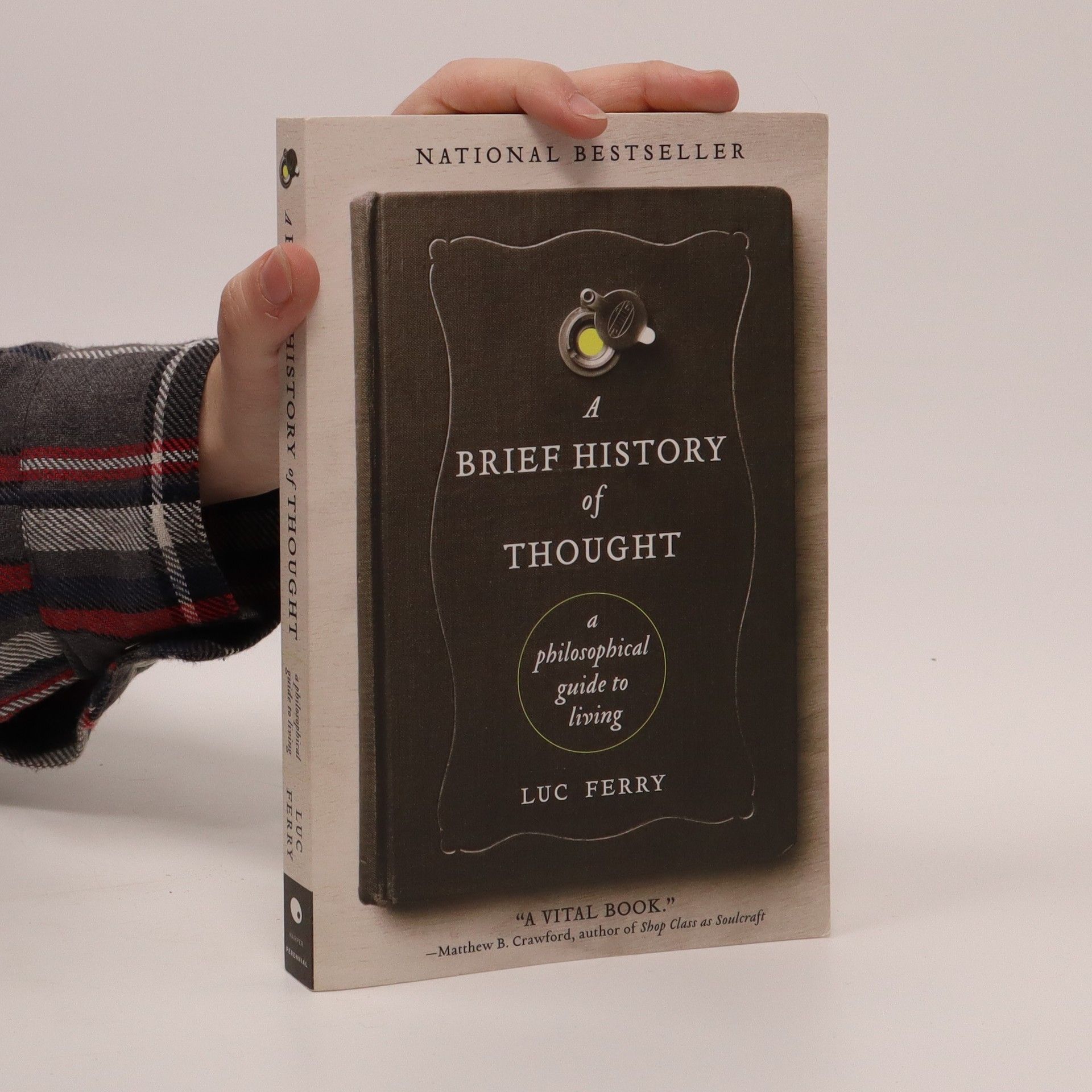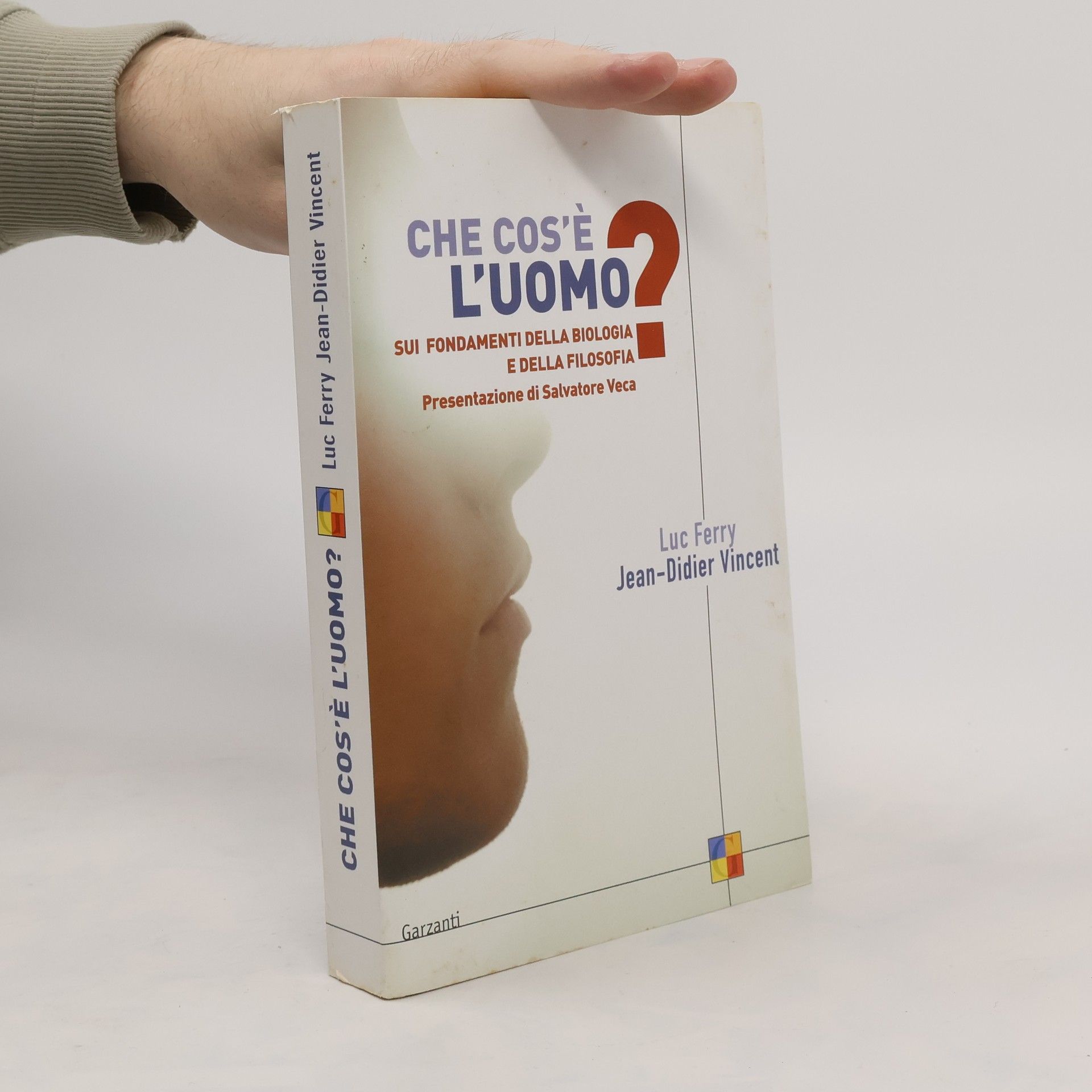Che cos'è l'uomo? Sui fondamenti della biologia e della filosofia
- 284pagine
- 10 ore di lettura
Luc Ferry è un filosofo francese e un notevole sostenitore dell'umanesimo secolare. Il suo lavoro si addentra nelle profonde questioni dell'esistenza umana, della moralità e del senso della vita nel mondo moderno. Ferry cerca di offrire risposte filosofiche alle contemporanee crisi di identità e di valori. Il suo approccio spesso collega la tradizione filosofica con le questioni sociali attuali, offrendo ai lettori spunti di riflessione sull'era presente.







Eight months on the bestseller lists in France! From the timeless wisdom of the ancient Greeks to Christianity, the Enlightenment, existentialism, and postmodernism, Luc Ferry’s instant classic brilliantly and accessibly explains the enduring teachings of philosophy—including its profound relevance to modern daily life and its essential role in achieving happiness and living a meaningful life. This lively journey through the great thinkers will enlighten every reader, young and old.
Antigone, die Tochter des Ödipus, widersetzt sich dem Verbot des Königs von Theben und bestattet ihren Bruder, der als Rebell gebrandmarkt wurde. Auf diese Tat steht die Todesstrafe, doch sie kann nicht anders, als ihrem Gewissen zu folgen und ihre heilige Pflicht gegenüber ihrer Familie und den Göttern zu erfüllen. Doch König Kreon, ihr eigener Onkel, hat nicht die Absicht, ihren Ungehorsam unvergolten zu lassen...Die durch Sophokles überlieferte Tragödie der Antigone illustriert – in den Worten des Philosophen Hegel – die Kollision zweier Mächte: der Familie und des Inneren mit dem Staat und dem Weltlichen. Beide sind zugleich im Recht und im Unrecht, und so ist »Antigone« bis heute ein Sinnbild für einen der Grundkonflikte jeder Gemeinschaft.
Book by Luc Ferry
»Singe, O Göttin, den Zorn des Achilles…« Paris, Prinz von Troja, raubt die schöne Helena aus Sparta, um sie zu ehelichen. König Agamemnon, Heerführer der Griechen, nutzt diese Beleidigung, um Troja den Krieg zu erklären. In seinem Gefolge ist Achilles, der größte aller Krieger, der seine Chance auf unsterblichen Ruhm gekommen sieht. Doch sie alle sind nur unwissende Spielfiguren der Götter… Große Epen, mächtige Götter, gewaltige Bestien, außergewöhnliche Helden – die griechische Mythologie ist ein unerschöpflicher Quell wundervoller und aufregender Abenteuer. Auch heute können wir aus ihr lernen, und darum bildet sie immer noch ein Herzstück der humanistischen Bildung auf der ganzen Welt. »Mythen der Antike« lässt uns eine Reihe der wichtigsten Sagen als Comics neu entdecken. Unter der Direktion von Luc Ferry, dem ehemaligen französischen Minister für Bildung, wurden die Originaltexte mit größter Sorgfalt adaptiert und graphisch brillant umgesetzt. Jeder Band präsentiert einen kompletten Mythos, dessen philosophisches und kulturelles Erbe in einem umfassenden Ergänzungsteil erläutert wird.
"Heidegger reste le grand philosophe allemand du XXe siècle, et ce en dépit même du caractère désastreux de ses prises de position politiques en faveur du nazisme. Si son oeuvre est extrêmement difficile, on peut traduire sa pensée dans un langage clair en se concentrant sur deux axes principaux : sa critique du " monde de la technique " et ce qu'il appelle la " question de l'Etre " qui l'amène à jeter un regard d'une profondeur inégalée sur l'ensemble de la tradition métaphysique occidentale, de Platon jusqu'à Nietzsche..."